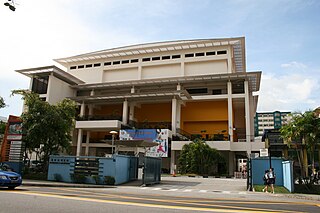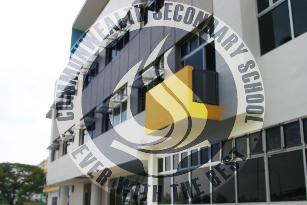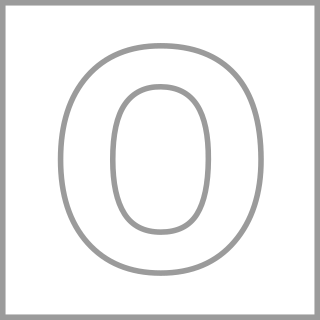A calendar is a system of organizing days for social, religious, commercial or administrative purposes. This is done by giving names to periods of time, typically days, weeks, months and years. A date is the designation of a single, specific day within such a system. A calendar is also a physical record of such a system. A calendar can also mean a list of planned events, such as a court calendar or a partly or fully chronological list of documents, such as a calendar of wills.

Easter, also called Pascha or Resurrection Sunday, is a festival and holiday celebrating the resurrection of Jesus from the dead, described in the New Testament as having occurred on the third day of his burial after his crucifixion by the Romans at Calvary c. 30 AD. It is the culmination of the Passion of Jesus, preceded by Lent, a forty-day period of fasting, prayer, and penance.
ISO 8601 Data elements and interchange formats – Information interchange – Representation of dates and times is an international standard covering the exchange of date- and time-related data. It was issued by the International Organization for Standardization (ISO) and was first published in 1988. The purpose of this standard is to provide an unambiguous and well-defined method of representing dates and times, so as to avoid misinterpretation of numeric representations of dates and times, particularly when data are transferred between countries with different conventions for writing numeric dates and times.
A month is a unit of time, used with calendars, which is approximately as long as a natural period related to the motion of the Moon; month and Moon are cognates. The traditional concept arose with the cycle of Moon phases; such months (lunations) are synodic months and last approximately 29.53 days. From excavated tally sticks, researchers have deduced that people counted days in relation to the Moon's phases as early as the Paleolithic age. Synodic months, based on the Moon's orbital period with respect to the Earth-Sun line, are still the basis of many calendars today, and are used to divide the year.
The General Certificate of Education (GCE) is a subject-specific family of academic qualifications that awarding bodies in England, Wales, Northern Ireland, Crown dependencies and a few Commonwealth countries, notably Sri Lanka, Pakistan, Malaysia and Singapore, confer on students..
Decaffeination is the removal of caffeine from coffee beans, cocoa, tea leaves, and other caffeine-containing materials. While soft drinks which do not use caffeine as an ingredient are sometimes described as "decaffeinated", they are better termed "non-caffeinated" because decaffeinated implies that there was caffeine present at one point in time. Decaffeinated drinks contain typically 1–2% of the original caffeine content, and sometimes as much as 20%. Decaffeinated products are commonly termed decaf.

Ngee Ann Secondary School is an autonomous government-aided secondary school in Tampines, Singapore. Founded in 1994 by the Ngee Ann Kongsi, a Teochew clan foundation, Ngee Ann Secondary was a successor to the now defunct Tuan Mong High School.
Guthrie Corridor Expressway, GCE, is an expressway in Klang Valley, Selangor, Malaysia. It connects Shah Alam to Rawang. GCE is approximately 25 km (16 mi). The expressway is unique in Malaysia in that all project costs, including land acquisition, were completely borne by the concessionaire. Of the land acquired, 80 percent was from a plantation company Guthrie Berhad which in 2007 merged with two other companies to form Sime Darby. Today this expressway is owned by Prolintas and its subsidiary Prolintas Expressway Sdn Bhd.
The starting point of the highway or 'Kilometre Zero' is located at the Jalan Monfort intersection near Shah Alam.
The Singapore Examinations and Assessment Board is a statutory board under the Ministry of Education (MOE) of Singapore.

Commonwealth Secondary School is a government, autonomous and coeducational secondary school in Jurong East, Singapore. Founded in 1964, Commonwealth Secondary School offers secondary school education which leads to the Singapore-Cambridge GCE Ordinary Level or Singapore-Cambridge GCE Normal Level examination.
This article is about the grading that is used in Hong Kong.

The A Level is a subject-based qualification conferred as part of the General Certificate of Education, as well as a school leaving qualification offered by the educational bodies in the United Kingdom and the educational authorities of British Crown dependencies to students completing secondary or pre-university education. A number of countries, including Singapore, Kenya, Mauritius and Zimbabwe have developed qualifications with the same name as and a similar format to the British A Levels. Obtaining an A Level, or equivalent qualifications, is generally required for university entrance, with universities granting offers based on grades achieved.

The O Level is a subject-based qualification conferred as part of the General Certificate of Education. It was introduced as part of British educational reform alongside the more in-depth and academically rigorous A-level in England, Wales and Northern Ireland. Those three jurisdictions replaced O Levels gradually with General Certificate of Secondary Education (GCSE) and International General Certificate of Secondary Education (IGCSE) exams over time. The Scottish equivalent was the O-grade. The O Level qualification is still awarded by CIE Cambridge International Examinations, the international counterpart of the British examination Board OCR, in select locations, instead of or alongside the International General Certificate of Secondary Education qualifications. Both CIE and OCR have Cambridge Assessment as their parent organisation. The Cambridge O Level has already been phased out, however, and is no longer available in certain administrative regions.

The Office of Qualifications and Examinations Regulation (Ofqual) is a non-ministerial government department that regulates qualifications, exams and tests in England and, until May 2016, vocational qualifications in Northern Ireland. Colloquially and publicly, Ofqual is often referred to as the exam "watchdog".
Lahore College of Arts and Sciences, founded in 1987, is a private fee-paying academic institution with most of its campuses located primarily in Lahore, Punjab, Pakistan. LACAS provides preschool, primary and secondary education and preparation for international General Certificate of Education (GCE) examinations.
The Singapore-Cambridge General Certificate of Education Advanced Level is a GCE Advanced Level examination held annually in Singapore and is conducted jointly by the Singapore Ministry of Education (MOE), Singapore Examinations and Assessment Board (SEAB) and the University of Cambridge Local Examinations Syndicate (UCLES).

Google Compute Engine (GCE) is the Infrastructure as a Service (IaaS) component of Google Cloud Platform which is built on the global infrastructure that runs Google's search engine, Gmail, YouTube and other services. Google Compute Engine enables users to launch virtual machines (VMs) on demand. VMs can be launched from the standard images or custom images created by users. GCE users must authenticate based on OAuth 2.0 before launching the VMs. Google Compute Engine can be accessed via the Developer Console, RESTful API or command-line interface (CLI).
Gonzalo Hinojal Neila, simply known as Gonzalo, is a Spanish professional footballer who plays for CF Talavera de la Reina as a central defender.







